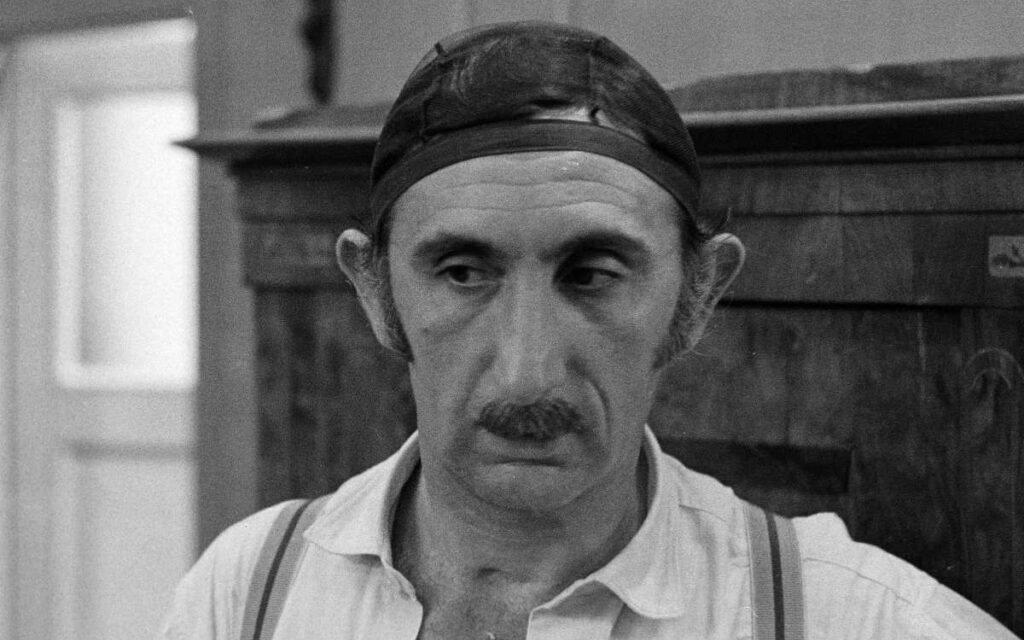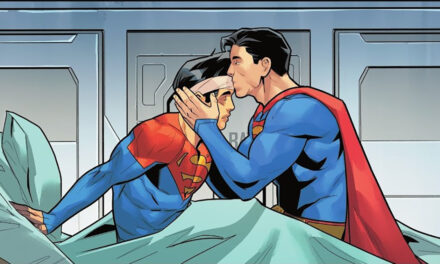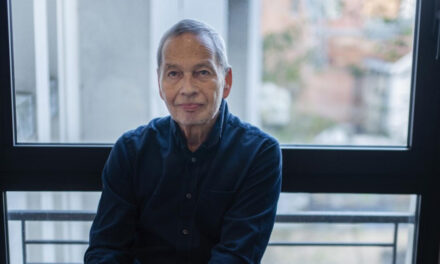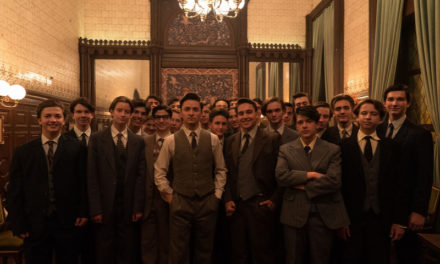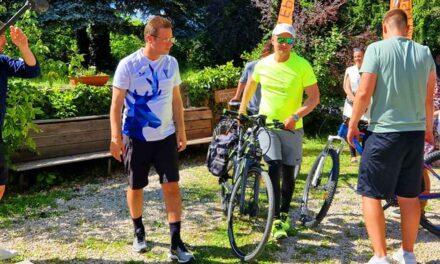Dezső Garas was one of the greatest actors of his generation, who, in addition to his memorable stage roles, also portrayed many iconic characters in period films. He always said that when he was young, he didn't really want to be anything, that's why he became an actor.
Already in college, he was considered an outstanding talent; a former student who didn't even understand why Dezső Garas was going to college, since he knew everything about his profession as a born genius. Based on his performance in comedies, some people considered him the domestic successor of Charlie Chaplin, who, at the same time, kept the shocked audience in their seats with his dramatic performances. He had a legendary professional and friendly relationship with Mari Törőcsik, with whom he first appeared on the stage of the National Theater.
From the eighties, he also started directing, also in a variety of genres. Among his related works are puppet theater direction; in addition to comedies and dramatic works, he also staged The Queen of Czars on the Margitsziget Outdoor Theater with - among others - Mari Törőcsik, György Kálmán, Ferenc Bessenyei, Péter Haumann, István Hirtling. He considered the contrast between actor and director simply "stupid". The uniquely talented artist was the first freelancer in theater life after the Second World War, and meanwhile he himself believed in the ideas that became his catchphrase in connection with his two film roles: "You need a team!" and "You can't do it alone."
Prologue
My father, István Sztankay, came to the National Theater in the capital from the theater in Miskolc. For one season, he belonged to a company with Dezső Garas, who was only two years older than him, and then signed a contract with him. For years, my father mentioned that on one occasion, when he was leaving the stage, he heard Dezső Garas and György Kálmán, who were watching his scene from the curtain, agreeing that the young Sztankay was a very great actor, it's a shame that he was rather small than big.
At first, my father mentioned the incident with a little pain, but later he laughed. As a journalist, I conducted two interviews with Dezső Garas - I will quote from one of them - that was my personal meeting with him. He was extremely cordial with me, spoke highly of my father, did not mention his stature. I myself mentioned to him at the end of our first interview that your former comment with György Kálmán left a strong impression on my father. Dezső Garas seemed to be shaken, then after a long silence he said: That must have been Gyuri, muttering to himself. I wasn't there either. Throwing the former snarky remark at György Kálmán, but arranging his face in such a way that I had no doubt about it: he snorted. I laughed, of course.
Tastes
Dezső Garas was born on December 9, 1934 in an apartment without comfort in the VII. district Alsó erdősor utca 10, under the name Dezső Grósz. His father, Lajos Grósz, was a horse dealer, his mother Ilona Sirger. Later, two daughters were born to the parents.
(Addition to the character of Ilona Sirger: During her son's membership in the national theater, thanks to Major Tamás, Aunt Grósz - the director wanted to help the poorly paid young actor in this way - became a sitter in the theater, and in 1956, during the performance of the play Galilei, she asked for silence in the lobby author, László Németh, who is pacing up and down excitedly. When he calls out to him, he doesn't yet know who he is regulating. When László Németh reveals his identity, Aunt Grósz softens, but ties him to the stake and asks him to sit in the foyer.)
The horse trader Lajos Grósz is Jewish, Ilona Sirger is Roman Catholic, and their first child is a true child of love. The little boy receives his father's religion first, although already in 1934 increasingly gloomy present and tomorrow are looming. In 1944, their child was baptized into his mother's religion. Not long after, a life-saving operation is performed on a twelve-year-old boy due to his goiter. Dr. Róth brings him back from the state of clinical death, the little boy's vocal cords are damaged during the laryngotomy, and the huskiness of the actor's voice becomes his trademark.
He is being released from the hospital. Even if he is registered as a Catholic, he and his loved ones get a yellow star. Hiding follows. He never mentions this phase of his life in detail later. He talks more often about the specific inner world of his childhood and youth defined by the environment.
Dezső was sixteen years old when his family moved from Alsó erdősor utca to Bérkocsis utca, to an even more modest apartment than before. Street girls were already in the vicinity of their previous residence, but after settling in the "Nyócker" in the 1950s, they arrived in the center of an illegal brothel district. Banned or not, business doesn't stop. It takes place in doorways, in the semi-darkness of kitchens, and in dens hidden in tenements. Their cultivators - girls and runners - behave peacefully with the residents, shopkeepers and transporters. The basic rule is to live and let live, despite the thousand madnesses of the Rákosi dictatorship.
In addition, in the surrounding squares, things happen according to the rules of the grund world. In the frequent give-and-take between his peers, the Grósz child, with a set ear, is more likely to receive than to give. In the community of the public school on Rottenbiller Street - where he completes the compulsory four classes - cockiness is rarer, and Dezső Grósz accepts his peculiar appearance with humor and fun. When he grows up, he will say that he had a taste of that world rather than its romance. But the taste is such that, looking back, it can beautify - at least for the most part - the events of that time.
Just for fun
Dezső Garas sums it up in an interview: There were two couples in our neighborhood, which I now know were very useful, because they dissipated a lot of anger and tension. I liked the butchers, the spice shops, the coal cellars. I also liked the atmosphere created by the musical gypsies on Mátyás tér, and I fondly remember the small-sprinkled, raspberry pubs where people drank schnapps and got fat. To this day, they really mean Pest to me. After graduating from the civil service, he begins to learn the iron turning trade at the vocational training school in Bezerédj Street.
He continues to maintain his position as the class clown. In the evenings, he often goes to the performances of the Operetta Theatre. Her favorite is the Grand Duchess Gerolstein, she sees her at least five times. He admires the Latabárs, Feleki, Rátonyi, Honthy, and Marika Németh. It doesn't occur to him to follow them. Dezső Garas always said: I actually didn't want to be anything. That's why I became an actor. As usual, he explained his entry into the field by saying that he actually appeared in one or two student theater performances at the urging of an apprentice who was preparing to become an actor, and just for the sake of fun, he applied to the Theater and Film Academy as a bet.
It is certain that the trade journal Színház- és Filmművészet noticed him as early as 1951, when the cultural group of the Leather Trade Union staged Mihály Vitéz Csokonai's Karnyóné, in which Dezsső Grósz played industrial apprentice Tipptop, and the trade journal praised his comedic skills.
According to Péter Molnár Gál, who has an otherwise disgraceful past - who analyzed the actor's career in a multi-authored biography - it was actually Vilmos Dobai, a third-year directing student at the time, who steered Dezső Garas towards acting. Dobai patronized the theater circle of the iron industry students, and when an older amateur actor who was contributing as a guest in their circle fell ill, the director student, driven by a peculiar idea, asked the freckled, shriveled, big-eared Dezső Grósz to step in. With the help of a single handkerchief, the boy with a poopy stomach transforms into the grumbling, suddenly angry, drunken Kuzma Nikolayevich Hirinj, the aged bank accountant of Chekhov's Jubilee. Later, Dobai firmly asked the Grósz boy: forget the lathe bench.
The full article can be read on Origo!
Featured image: Fortepan/Krisztián Gaál Gyulai

